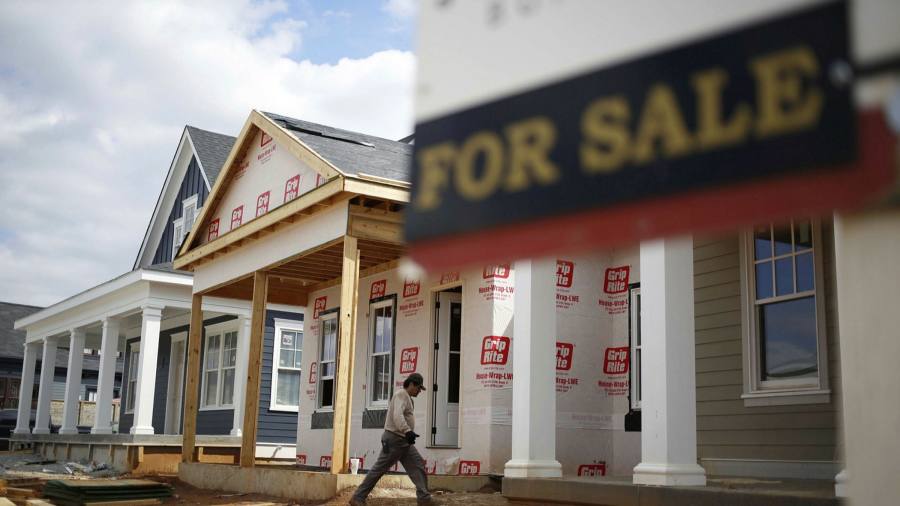[ad_1]
Americans took out a record $1.2tn worth of mortgages in the final three months of 2020, locking in historically low interest rates to buy homes across the country.
Total mortgage balances rose by $182bn in the fourth quarter of 2020, the biggest increase since 2007, according to the Federal Reserve Bank of New York on Wednesday. The sharp uptick was driven in large part by the fastest quarterly expansion in mortgage originations since the Fed began collecting data in 2000.
Borrowers with high credit scores — above 760 — fuelled the surge, accounting for more than two-thirds of total originations for the quarter. That is significantly higher than the share of new mortgages that went to the most creditworthy borrowers during the last mortgage boom in 2003, when they represented only about a third of originations.Â
“Homeowners are taking advantage of the mortgage interest rates at historic lows, even taking some cash out with their refinanced mortgages,†economists at the New York arm of the US central bank wrote in their report, which was released on Wednesday.Â
Borrowing costs have plummeted over the past year as the Fed has sought to stimulate the US economy and limit fallout from the coronavirus pandemic. In March, the US central bank slashed its policy rate to zero and announced an unlimited asset purchase programme, among other measures.
The central bank now buys $120bn of Treasuries and agency mortgage-backed securities per month, purchases that have helped ease stresses in financial markets and kept credit flowing to businesses and consumers.

The central bank policies and a shift to remote work has prompted a boom in US home sales, which hit their highest level in 14 years in 2020. Refinancing activity also climbed last year, reaching the highest level since 2003.
“The Covid pandemic and ensuing recession have marked an end to the dynamics in household borrowing that have characterised the expansion since the Great Recession, which included robust growth in auto and student loans, while mortgage and credit card balances grew more slowly,†wrote the New York Fed economists, led by Andrew Haughwout. “As the pandemic took hold, these dynamics were altered.â€
Auto loan originations rose to $162bn — slightly lower than the record set in the third quarter of last year, although still the second highest quarterly volume since at least 2000.Â
That helped push up auto loan balances by $14bn, while student debt balances rose $9bn. Credit card balances also climbed, but still remain $108bn below levels seen at the end of 2019, reflecting what the economists saw as “continued weakness in consumer spendingâ€.
Taken together, the New York Fed found that total household debt balances increased by $206bn during the fourth quarter to $14.56tn, a 1.4 per cent rise from the previous quarter.
Delinquency rates, however, continued to decline, as consumers were granted forbearance as part of the relief package passed by Congress last year, known as the Cares Act.

According to the Fed, the share of outstanding debt that was in some stage of delinquency at the end of December was 1.6 percentage points lower than levels seen before the pandemic. For mortgages, loans that transitioned to early delinquency in the fourth quarter dropped to 0.4 per cent.Â
The delinquency trends “suggest that the government fiscal and forbearance programmes are workingâ€, Federal Reserve researchers told the FT. “The big question is what happens when the programmes stop, and whether the economy will be growing fast enough then. To an extent, underlying problems are hidden.â€
Joe Biden has sought to alleviate any pressure on homeowners in the coming months. Earlier this week, his administration announced it would extend a federal moratorium on foreclosures until the end of June.
[ad_2]
Source link





